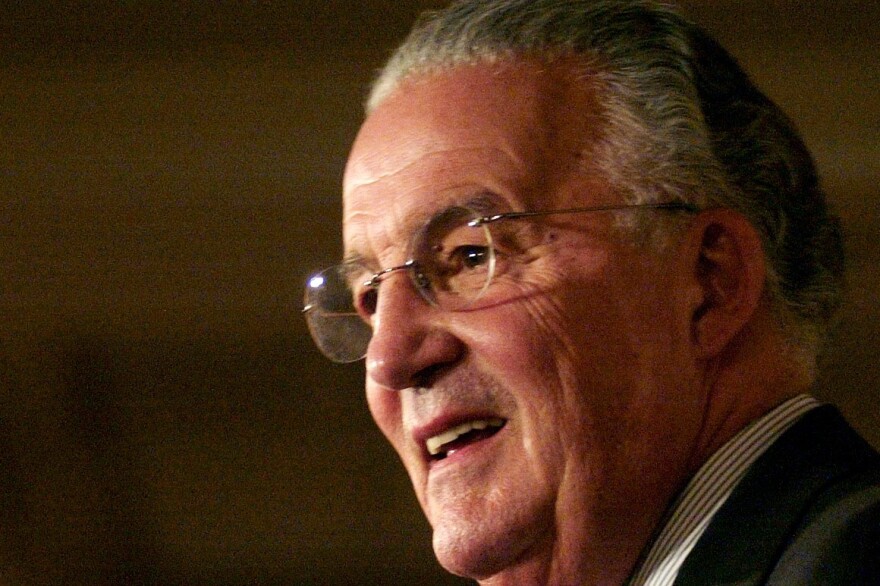Paul Sarbanes, who represented Maryland in the US Senate for five terms, has died. He was 87.
His son, John Sarbanes, the US Congressman from Maryland’s 3rd Congressional District, said in a statement the former Senator “passed away peacefully” Sunday evening in Baltimore.
No cause of death was given.
John Sarbanes said in his statement his family “is grateful to know that we have the support of Marylanders who meant so much to him and whom he was honored to serve.”
The younger Sarbanes’ office did not return phone calls.
Paul Sarbanes was a consistently liberal Senator who shunned the limelight and was even known to some as the “stealth Senator.”
Former Senator Barbara Mikulski, who served with him, called him “a workhorse, not a show horse.”
“He didn’t care who got the credit,” she said. “He cared about how to get the job done.”
Mikulski said the two of them—he was the son of Greek immigrants who ran a diner in Salisbury and she the daughter of grocers in Highlandtown—called themselves the “Diner Democrats.”
“Both of us heard our families say good morning, can I help you,” she explained. “We were raised in kind of a retail environment of really wanting to say hello to people connect to people and say how we could help them.”
Sarbanes grew up bussing tables and washing dishes in the family diner. He went to Princeton on a scholarship, became a Rhodes Scholar and graduated from Harvard Law School in 1960. He won a race for the House of Delegates from Baltimore in 1966 and four years later won a race for Congress.
He served three terms in Congress, where he drafted the first article of impeachment against President Richard Nixon during the Watergate scandal. In 1976, he unseated Republican Senator J. Glenn Beall to take a seat in the upper chamber alongside Maryland Republican, Charles Mac. Mathias. Mikulski won Mr. Sarbanes’ House seat.
She said that’s when they decided to be Team Maryland.
“We were going to work across party lines and we were going to work for the good of the state and we were going to check our party preferences and our bumper stickers at the door,” she recalled.
In the Senate, Sarbanes didn’t write many bills of his own, but helped shepherd legislation involving Social Security, tax law and campaign finance to passage. And along with Republican Rep. Michael Oxley of Ohio, sponsored what became known as the Sarbanes-Oxley act, a reaction to corporate and accounting finance scandals such as Enron WorldCom.
He also was known as a champion of the Chesapeake Bay. One of his bills required the Environmental Protection Agency to create a Chesapeake Bay liaison office.
Will Baker, president of the non-profit Chesapeake Bay Foundation, says that may not sound like much today, but this was in the early 90s when there were a number of federal, state and local agencies, as well as non-profits, working on bay issues. And they weren’t well coordinated.
“And he wanted to make sure, in classic Sarbanes fashion, that everybody was talking to each other and coordinating their activities,” Baker said. “And I think that’s probably a hallmark of the bay program going forward now.”
Even after Sarbanes left office, Baker said, he maintained an interest in the Bay.
Most people wil ask him in general, how the bay’s doing, Baker said. But Sarbanes was different.
“It was, Will, how’s the bay? But I want to know did EPA do X? Or is Maryland getting serious about storm water? Things like that” Baker said. “He was always very specific and it was classic Sarbanes, thoughtful sincere and detailed.”
John Sarbanes said in his statement his family will follow state, local and public health guidance amid the COVID-19 pandemic and hold a private service.



